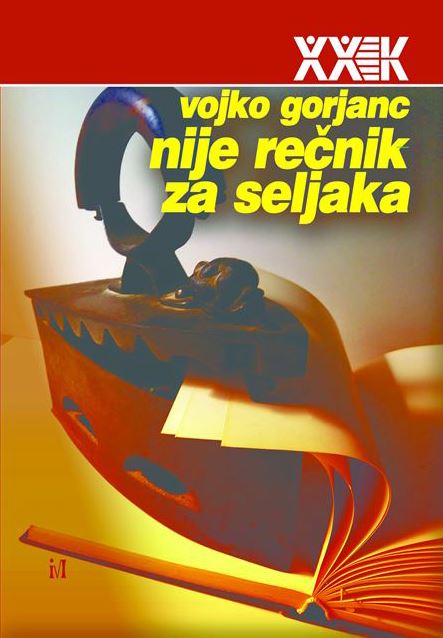Vojko Gorjanc, Dictionaries Approach with caution
Translated from the Slovenian by Majda Moličnik
Published in cooperation with the Scientific Press of the Faculty of Philosophy of the University of Ljubljana
First edition: September 2017, 197 pages
Price: 700 dinars
Vojko Gorjanc (b. 1969) is a professor of the Department of Translation Studies at the Faculty of Philosophy of the University of Ljubljana. He leads one of the principal national research programmes on the Slovenian language, The Slovenian language: basic, contrastive and applied research. He is active in the work of the university’s new Center for language resources and technology. He teaches courses in sociolinguistics, textual linguistics, critical discourse analysis, and research methodology. His first book was in the field of corpus linguistics (Introduction to corpus linguistics, Domžale, 2005), and he continues to use corpus linguistics methodology in his research. Together with Alenka Morel he published the book Community interpretation: Slovenian in intercultural communication (Ljubljana, 2016). He represents the University of Ljubljana in the European Language Council and the International Permanent Conference of University Translation and Interpretation Institutes (CIUTI: Conférence Internationale Permanente d’Instituts Universitaires de Traducteurs et Interprètes).
The study Dictionaries:Approach with caution sheds light on lexicography and lexicographic descriptions from the perspective of critical linguistics, above all critical discourse analysis and queer linguistics, and so contributes to debates on critical lexicography. It fives an overview of research on the position of dictionaries in society and their understanding in various cultural contexts, both from the point of view of lay opinion and of lexicographers and linguists. It also, through an analysis of dictionary definitions, reveals their ideological character. Dictionary definitions are interpretations of discursive reality produced by lexicographers, attempts to grasp unstable meanings that constantly change in discourse, and consequently always represent lexicographical approximations, at the same time interpretations, and so it is logical to consider that lexicographical work is far from objective. (from the Introduction)



